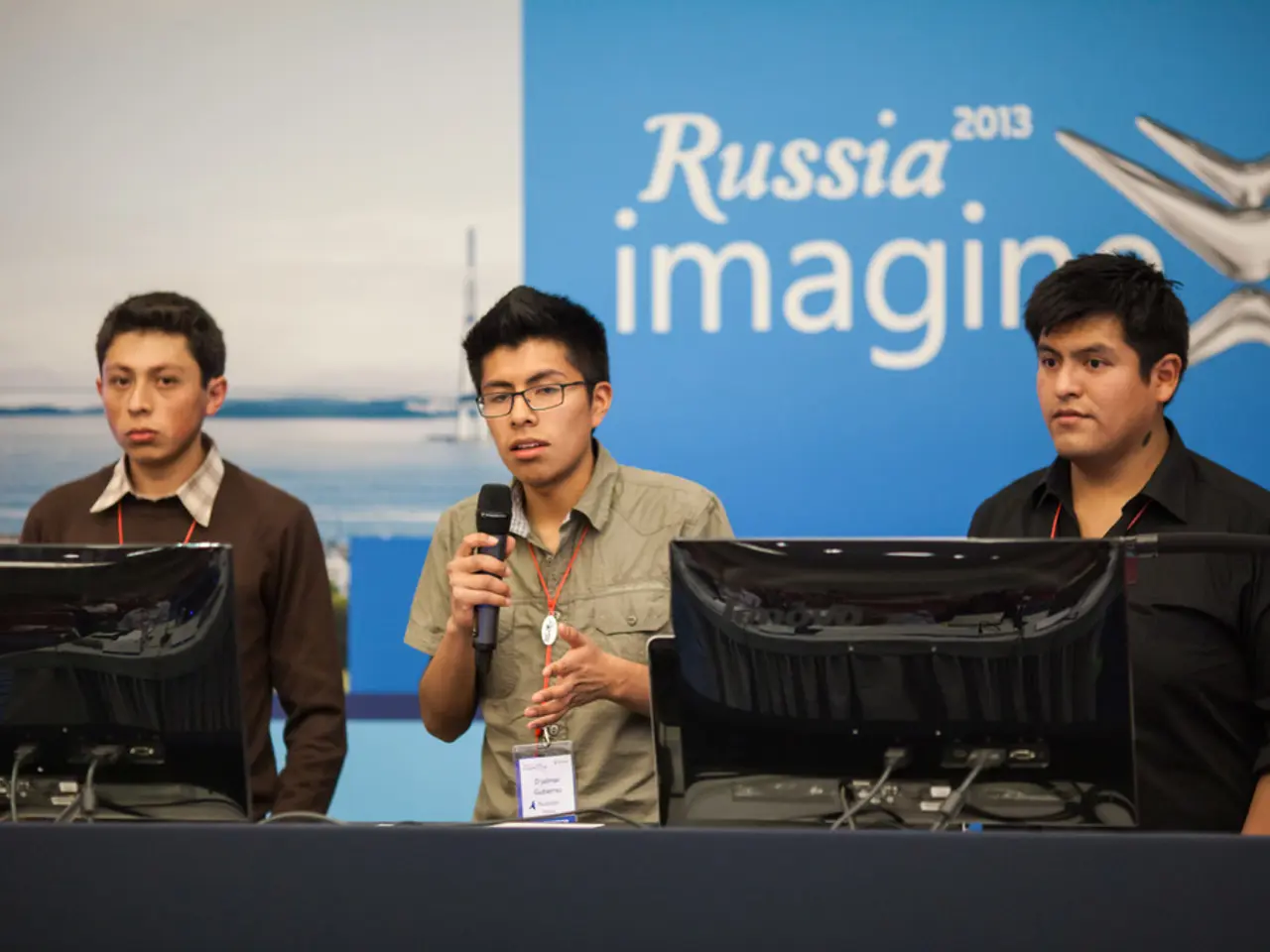In Russia, there has been a proposal to boost the birth rate
In Russia, a significant proposal is under consideration to boost the birth rate by increasing maternity leave payments and extending their duration. The proposal, put forward by economist Alexander Larionov, suggests a substantial raise in maternity allowances and longer paid leave durations for young mothers.
According to the proposal, payments for female students will increase almost eightfold—from 12,500 rubles for 140 days to about 90,000 rubles starting in 2026[1]. Larionov proposes raising maternity leave pay to 60% of average income for 2.5 years after the birth of the second child and up to 80% for three years after the third child, compared with the current 40% of average earnings for up to 1.5 years[2].
The proposed changes aim to encourage families to have more children by providing stronger financial support and longer parental leave, countering the declining birth trend in Russia (1.22 million children born last year, 3.4% less than 2023)[2]. However, experts warn that sharp increases may raise insurance premium rates, presenting economic challenges under current conditions[2]. Financial implementation could require 5 to 15 billion rubles initially, escalating to 20 to 30 billion annually as participation grows[2].
Apart from increasing maternity leave payments, other suggested measures to boost birth rates and support families include:
- Retaining and increasing child tax deductions, especially for third and subsequent children (raised to 6,000 rubles)[1].
- Continuing and improving the maternity capital program, currently about 690,000 rubles for the first child and 900,000 rubles for subsequent children, with streamlined application procedures to ease access for families[3].
- President Vladimir Putin’s direction to develop new family support measures beyond current efforts, emphasizing family well-being as a central national agenda[2][3].
- Indirect measures like enhancing food security and agriculture development to support families economically[3].
In addition, Larionov proposes mandatory studies of demographics in higher education institutions, the development of nurseries, and tax incentives for employers to allow flexible working hours for parents[4]. He also calls for the removal of the maximum limit on the allowance and indexing payments for the fourth and subsequent children based on the criteria for large families[4].
Another notable proposal, announced by Anatoly Aksakov, the chairman of the State Duma's Financial Market Committee, is the plan to double mortgage payments for large families[5]. However, specific details regarding this proposal have not been provided.
It is important to note that the proposal to double mortgage payments for large families was not mentioned in the article published in "Problems of Forecasting," where Larionov's initial proposal was based[6].
Compared internationally, Russia’s current maximum maternity leave payments are lower and shorter in duration than in some countries like Bulgaria, which offers about 58.6 weeks of paid leave at around 90% of salary plus additional allowances until the child turns two[4]. Russia’s proposal to increase payments and lengthen leave could somewhat align it with these more generous policies.
In summary, the proposal involves greatly increasing maternity leave payments and extending their duration to encourage higher birth rates, alongside retaining tax benefits and improving maternity capital access. While the measure could help alleviate Russia’s demographic decline, economic feasibility and potential increased social insurance costs remain key considerations[1][2][3].
[1] Izvestia, 2024 [2] TASS, 2024 [3] RIA Novosti, 2024 [4] UNICEF, 2022 [5] Kommersant, 2024 [6] Problems of Forecasting, 2024
- Alexander Larionov's proposal in Russia aims to enhance family-health by proposing a substantial increase in maternity allowances and prolonging paid leave durations for young mothers.
- To support the health-and-wellness of families, the proposal includes measures like retaining and increasing child tax deductions, especially for third and subsequent children.
- Larionov also advocates for improved nutrition by promoting the development of nurseries and tax incentives for employers to offer flexible working hours for parents.
- In the field of personal-finance, the proposal entails increasing maternity capital program funds for first and subsequent children, and the removal of maximum limits on allowances for large families.
- To boost the wealth-management of families, Larionov suggests a plan to double mortgage payments for large families, although specific details regarding this proposal are yet to be provided.
- Investing in the science of demographics is another essential aspect of Larionov's proposal, with a call for mandatory studies in higher education institutions. These efforts aim to provide long-term solutions for parenting and family health in Russia.




